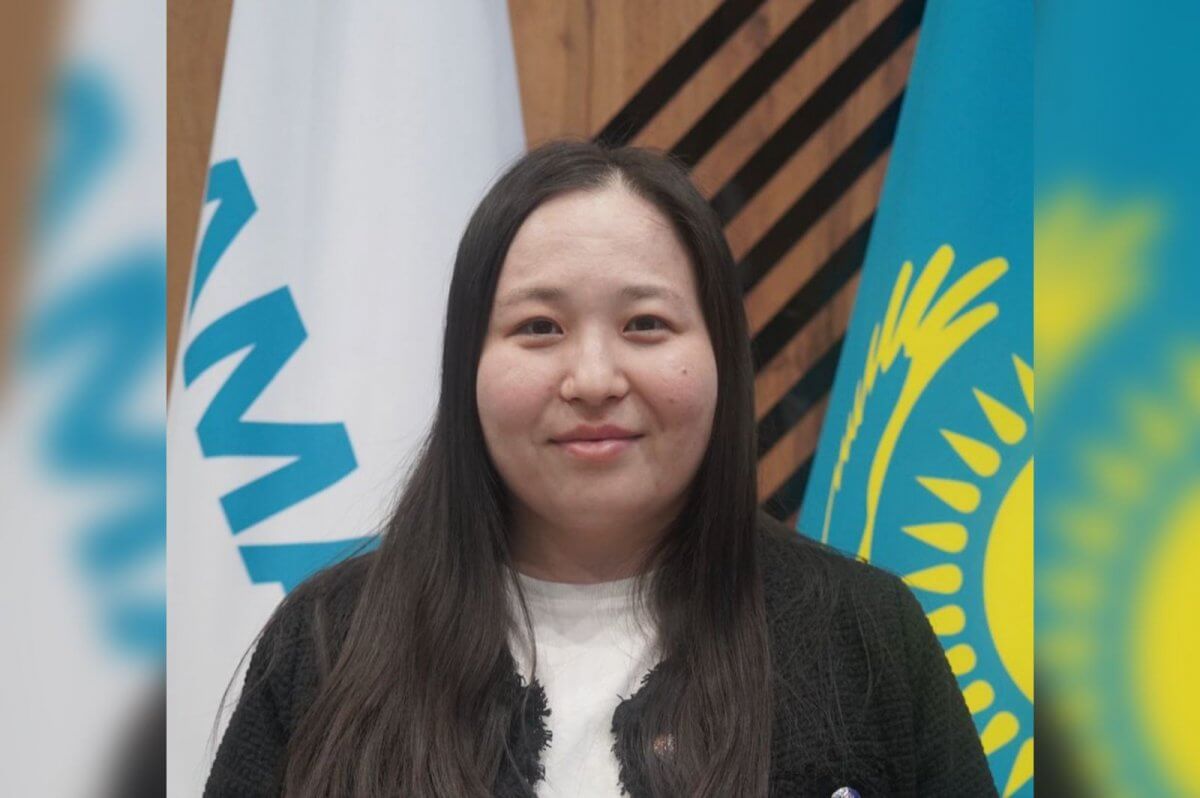BAKU, Azerbaijan, November 6. The cooperation between the member states of the Organization of Turkic States (OTS) today can be described as actively developing, yet complex and multifaceted, said Kazakhstan's political scientist and expert at the Kazakhstan Institute of Public Policy Zhansaya Nuralieva in an interview with Trend.
"Since the signing of the Nakhchivan Declaration in 2009, which marked the beginning of the establishment of OTS, the countries have started to engage more actively in various areas," she said. An example of successful cooperation is the development of the Trans-Caspian International Transport Route (TITR), which connects China, Kazakhstan, Turkmenistan, and Azerbaijan, and then extends through the Black Sea to Europe. Nuralieva noted that this route significantly speeds up and reduces the cost of transporting goods between Europe and Asia. "In 2020, plans were announced to increase the volume of transportation via this route by 25 percent, which demonstrates the growing interest and importance of this transport corridor for all OTS countries," she added.
However, according to the expert, there are certain challenges. "Differences in the levels of economic development and political systems of the countries can create difficulties for deeper cooperation," Nuralieva emphasized. For example, Türkiye and Uzbekistan have different foreign economic orientations. "In recent years, although Uzbekistan has been developing relations with Türkiye, it maintains a more balanced foreign policy, not focusing solely on strategic partnerships with one country," she explained.
As for the promising areas of cooperation, one of them is energy. "Kazakhstan and Turkmenistan have long been cooperating in the supply of natural gas to China," Nuralieva emphasized. In 2020, a new memorandum was signed to expand gas supplies, which contributed to strengthening regional energy security. "Azerbaijan, with its oil and gas fields in the Caspian Sea, is an important partner for other OTS countries, and joint projects considering the growing demand for energy resources in Asia and Europe only enhance the significance of cooperation in this sector," she added.
Another promising area is infrastructure. "The North-South transport corridor project, which aims to connect Russia with Iran via Kazakhstan, Turkmenistan, and Azerbaijan, is also an example of how OTS countries can act in the interest of accelerating goods transit and creating new economic opportunities," the expert noted.
A key role in future cooperation between OTS countries, according to Nuralieva, will be played by digitalization. "In 2021, Kazakhstan and Turkey signed a memorandum of cooperation in the field of technologies, including cybersecurity, artificial intelligence, and blockchain," she reminded. The development of these technologies can significantly enhance the competitiveness of OTS countries in the global market. "The development of these technologies will contribute to technological progress and improve infrastructure in our countries," the political scientist assured.
Nuralieva also emphasized the importance of the upcoming OTS summit. "The OTS summit, which will be held on November 6 in Bishkek, can have a significant impact on strengthening political and economic ties between the countries," she said. For example, at the last summit in 2021 in Istanbul, several key agreements were signed, including the creation of a free trade area between OTS countries. "This agreement opens up new opportunities for deepening economic ties and interaction in the goods and services market," the expert added.
From a political perspective, the summit is also important, especially in the context of global uncertainty. "OTS countries can coordinate their efforts to ensure stability in the region, for example, regarding security issues in Afghanistan or around the South Caucasus," she stressed. The summit could become a platform for forming common strategies concerning both foreign policy and domestic stability. In this regard, an Agreement on the Civil Protection Mechanism, aimed at ensuring coordinated responses to emergencies between member countries, is expected to be signed.
One of the key challenges for OTS in the current geopolitical conditions, according to Nuralieva, is competition with other regions and global players such as Russia, China, and the European Union. "It is necessary to note China's economic expansion in Central Asia, while the growing sanctions against Russia threaten some joint economic projects, such as the construction of railways and energy facilities," the expert pointed out.
To overcome these challenges, the OTS summit can become a platform for developing a joint policy to minimize external pressure and increase internal economic resilience. "One example could be the creation of alternative trade and logistics channels that will allow OTS countries to diversify their trade flows, minimizing dependence on external factors," Nuralieva believes.
As for Kazakhstan, its participation in the summit, according to the political scientist, has strategic significance. "Kazakhstan, as the largest country in Central Asia and a member of OTS since 2013, plays a key role in organizing and implementing integration projects within OTS," she emphasized. Kazakhstan serves as a link between the East and the West and actively promotes its economic interests, including the development of transport and energy infrastructure. "An example of Kazakhstan's significance is its participation in the construction of the China-Kazakhstan gas pipeline, which has become an important part of the energy strategy of Kazakhstan and Turkmenistan," the expert added.
Nuralieva also highlighted the importance of deepening cooperation between Kazakhstan and Azerbaijan. "Kazakhstan-Azerbaijan relations are developing in line with the Treaty on Strategic Partnership and Allied Relations," she reminded. Over the years of cooperation, about 70 documents have been signed in all areas, which confirms the importance of strategic partnership for both countries. "Kazakhstan and Azerbaijan are actively developing bilateral relations, particularly in the fields of transport and energy," she noted. Kazakhstan exports oil through Azerbaijan's ports on the Caspian Sea, and in 2021, an agreement was signed to increase the volume of oil transportation through Azerbaijan.
In addition, there is potential for deepening cooperation in areas such as innovation and high technologies. "Kazakhstan and Azerbaijan can jointly develop projects in the field of digitalization, smart cities, and the use of artificial intelligence," Nuralieva noted. One such project is the "Digital Silk Road," which involves the creation of a digital telecommunications corridor between Asia and Europe.







